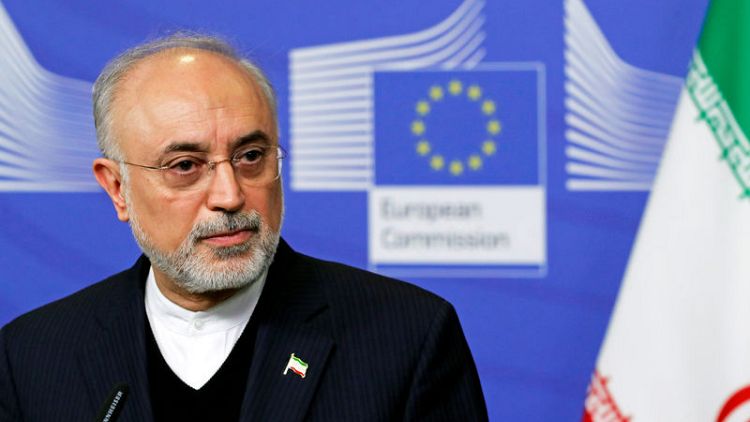BRUSSELS (Reuters) - Iran's nuclear chief warned the European Union of ominous consequences on Monday if it did not follow through with action to keep the economic benefits of the 2015 nuclear agreement alive.
The EU hosted the head of Iran's Atomic Energy Organization, Ali Akbar Salehi, at a seminar on nuclear cooperation aimed at showing its continuing support for the deal after U.S. sanctions targeting Iranian oil exports resumed this month.
The EU and other remaining signatories to the accord hope to convince Tehran to respect the curbs that the deal placed on its nuclear programme even though Washington has pulled out, depriving Iran of many of the economic benefits.
"If words are not turned into deeds, then ... it is very ominous, the situation would be unpredictable," Salehi told reporters at the conference.
Salehi, however, said he believed the EU was "doing its best" and was on its way to delivering on its promises.
EU efforts to salvage trade relations with Tehran, including by establishing a special mechanism for non-dollar transactions, have been floundering.
The Special Purpose Vehicle (SPV) would act as a kind of clearing house that could be used to help match Iranian oil and gas exports against purchases of EU goods in an effective barter arrangement. However, no EU country has come forward as a potential host - delaying the plans.
"Nobody should have any doubt on the level of political ambition and determination by the member states involved, in particular France, Germany and the United Kingdom to swiftly operationalise the SPV," Europe's Climate and Energy Commissioner Miguel Arias Canete said at a joint news briefing.
"This is a hugely complex and unique undertaking, technical work has been advancing over the last days and weeks."
(Reporting by Alissa de Carbonnel and Jan Strupczewski; Editing by Robin Pomeroy)
